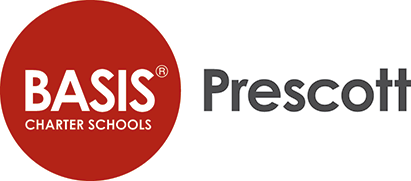Week 4: An Author You Can’t Refuse
Bonjour, readers, and welcome to week four! This week, I researched hybrid publication in-depth to finally round out my intensive research into the three main types of book publication. Additionally, I began my interviews with local authors that will occur throughout the month of March. Once I interview all six, I will compare their methods and advice, so keep an eye out for that in the beginning of April.
This will be a long post, so I hope you stay for the journey!
To begin, I will dive into hybrid publishing. Hybrid book publication is a perfect combination of traditional and self-publishing. So, what does that mean? Let’s say you want to build a beautiful bookshelf but do not know anything about carpentry. Of course, you can attempt to build one yourself—perhaps using mediocre YouTube tutorials—or, you can hire a professional. The shelf you build might fall apart because you are not a carpenter; however, with the latter choice, you hire a carpenter, and they build the shelf up to a professional quality. Then, they hand over the rights to you. You did not build the shelf, but you own it. That, in essence, is hybrid publishing. You pay a company to do all the work, but the company does not keep the rights to your book. A hybrid company also vets manuscripts, but they are much more open than any traditional company.
Consequently, as I researched further, I began to question human integrity. I learned that many “publishers” take advantage of this method to scam unknowing authors that just want to get their books published. Companies in the past have disguised themselves as “hybrid” publishing to take authors’ money and never follow through on their end of the contract. They force authors to buy absurd amounts of their published books, they truly do not offer professional services as they advertise, or they quietly maintain the rights of the book. Referring back to my analogy, that would be as if the carpenter took your money but did not build your shelf or refused to give it to you! So, what is the solution? The IBPA! The Independent Book Publishers Association is the largest publishing trade organization where independent companies can establish themselves as credible hybrid companies. Authors can be warned of scammers through this company. I learned that in order to be legitimate, the IBPA guidelines are as follows:
- A company must define a mission and vision for its publishing program.
- Vet submissions.
- Commit to truth and transparency in business practices.
- Provide a negotiable, easy-to-understand contract for each book published.
- Publish under its own imprint(s) and ISBNs.
- Publish to industry standards
- Ensure editorial, design, and production quality.
- Pursue and manage a range of publishing rights.
- Provide distribution services.
- Demonstrate respectable sales.
- Pay authors a higher-than-standard royalty.
After being reassured that human integrity still exists in the hybrid publishing realm, I weighed the pros and cons of publishing with this method:
PROS: the chances of getting your manuscript chosen are much higher; high royalty rates (50% or more); the author maintains all book rights; there are marketing and promotional packages; and the author has much less responsibility with professional services offered.
CONS: hybrid publishing is a dangerous method of publication if the company ends up being a scam; authors have to pay high rates (from $1,000 to $50,000); and it is a risky investment if not enough sales are made to cover the initial costs.
Also this week, I interviewed two self-published authors. I will briefly summarize what they taught me, but first, buy Pam’s book here! And, buy Kristen’s books here!
Pam Pearsall was the first author I interviewed. She self-published an exposé/memoir, Whispers of Truth, that dove into Prescott’s politics and her tumultuous childhood. She chose self-publishing because, at the time of publication, she was the center of local controversy and needed to quickly get out her story for the public. The timing was highly important, and self-publishing takes mere days. Pam said, “I’m largely content with the path I chose, especially the decision to self-publish given the timeliness and local relevance of the book’s themes. However, with the benefit of hindsight, I recognize one significant oversight: my approach to marketing.”
She explained to me how much work marketing takes for self-published books, telling me that “understanding that writing and publishing are just the beginning is crucial; actively driving sales through strategic marketing is what can truly make a difference in a book’s success.” Later in my project, I will be studying marketing strategies, so stay tuned!
Overall, Pam’s advice to me was “if writing is what you love, do it with everything you’ve got.”
Kristen Kauffman was the next author. She has three published books, two fiction novels Just Pretend and Breakable Rules, along with a personal memoir Watson Eats Bacon. I learned a lot from her about how complex self-publishing can be. When she first intended to publish, she used “print-on-demand,” a method obsolete now due to online growth. She told me that “if you go into publishing without knowing much, you’re going to learn the world very quickly.”
She and I also discussed the difficulties of traditional publishing. Kristen intends for her next book to be traditionally published, because after self-publishing three books, she recognizes the power in traditional. However, she and I related that method to a lottery. Only the top 10% of authors can really make a huge profit from traditional publishing, so for the rest of us, we have to figure out alternatives that will help us climb that ladder.
Thank you all for reading! Next week, I have more interviews planned for two authors of fantasy novels (which happens to be my favorite genre, so I am stoked). Until next week, as Elyas Machera says, run when you have to, fight when you must, rest when you can!


